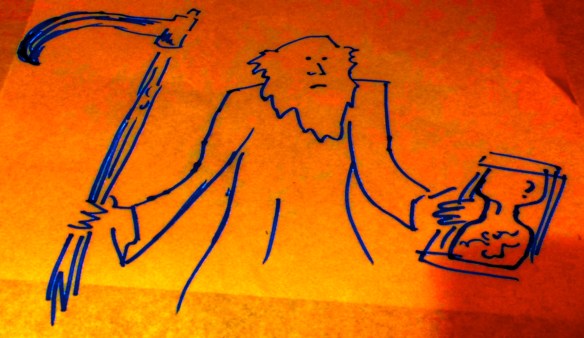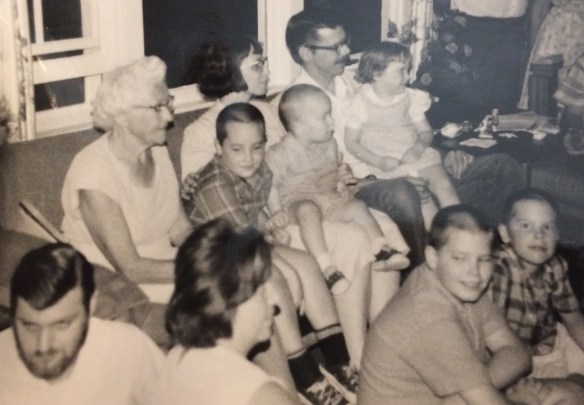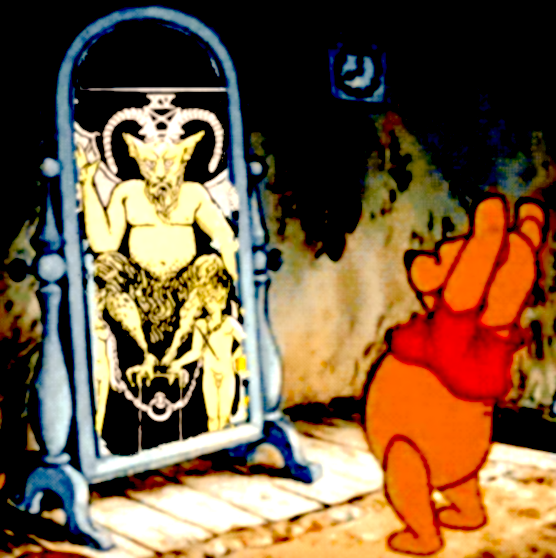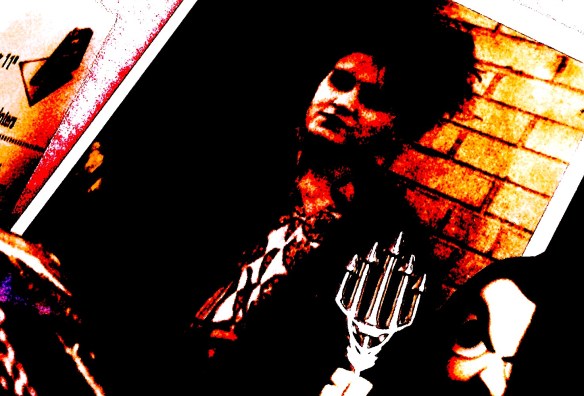by
JC Schildbach, LMHC
Last week, it came out that Josh Duggar, of the “19 Kids and Counting” Duggars, sexually assaulted four of his younger sisters as well as a young girl from another family. From what we know, this all happened back around 2003, when Josh was 14 or 15 years old.
Josh Duggar does not deny that he committed these crimes, although he refers to them as “sins” and “terrible things” and “mistakes” rather than crimes.
Josh Duggar never faced any legal consequences for his crimes.
The Duggar family claims that they addressed the sexual assaults by getting “closer to God,” by pursuing counseling for both Josh and the victims, and by going to the police.
But let’s be clear about this–the Duggar family NEVER GOT COUNSELING FOR JOSH OR THE VICTIMS OF HIS CRIMES, and THE FAMILY NEVER WENT TO THE POLICE.
How can I possibly know this? Well…
Let me first address the police situation, even if that is a bit backwards. Jim Bob Duggar (father to all of the Duggars—victims and victimizer), following Josh’s “counseling” took him to a law enforcement officer who was a family friend, for a “confession” that resulted in a “stern talk.” According to Josh’s parents, the law enforcement officer told them that since Josh had already gone through counseling, there was nothing more that could be done. So either 1) Josh’s parents are completely lying about what the police officer advised, or 2) The police officer was completely derelict in his duty, as far as what he was supposed to do when given information about sexual abuse involving children.
Also, the cop (again, a family friend) that the Duggars took Josh to meet with is currently SERVING MORE THAN 50 YEARS IN PRISON FOR POSSESSION OF CHILD PORNOGRAPHY. I’m sure he quite enjoyed his meeting with the young Josh Duggar.
Now, as to the counseling…
If any of the victims, or the perpetrator, had gone to any kind of legitimate counselor who deals with sexual offense behaviors, or with sexual victimization, or with any form of recognized counseling that requires a person to be credentialed at all, a report would have been made to Child Protective Services, and an investigation would have occurred much earlier than it did—early enough that Josh would likely have faced some legitimate legal consequences before the three-year statute of limitations on his crimes ran out, and early enough that his family would not have been able to completely manipulate the situation, and keep it out of the legal system, and out of the public eye—well, out of the public eye until now.
Simply put, counselors are mandated reporters. They cannot keep things like this on the down-low—not without losing their licenses.

Such a lovely wedding. You’d never guess…
As it is, if it weren’t for an anonymous “tipster” contacting the authorities in Arkansas and the production staff of the Oprah Winfrey Show (who also contacted the Arkansas authorities) back in 2006, there never would have been an investigation at all. Josh would have victimized four of his sisters, and another young girl, and had to face the “punishment” and “counseling” he got by spending four months away from home, reading the Bible and helping a family friend do some remodeling work—not exactly an evidence-based means of addressing sexually predatory behaviors.
And, again, that’s exactly what happened: No punishment. No real counseling.
The victimized girls also did not receive anything that might be considered an evidence-based form of counseling for addressing sexual trauma and sexual victimization. We have a key to what kind of treatment the girls might have received, in Samantha Field’s blog post, where Duggar-family Guru Bob Gothard’s insanely creepy “Counseling Sexual Abuse” graphic is posted—a chart that, among other things, suggests that being sexually assaulted brings one favor with God, and special spiritual strengths.
In other words, the Duggar girls were almost certainly told that being sexually victimized was a good thing in the eyes of Jesus—in no small part because it helps them recognize how terrible they were as prepubescent temptresses, and because it makes them super-spiritual. In case there is any need for clarification, such “reframing” is not considered “best practices” for addressing sexual victimization.
In fact, if any of the children had gone to any legitimate form of counseling, the girls would have had control over whether they even had to listen to an apology from Josh, much less having him allowed back in the home after a few short months away. And there would have been a much more involved discussion of how/whether to integrate Josh back into the home.
And just so you know where I’m coming from, I spent over two years working full-time with juvenile sex offenders, and then spent over six years working part-time with adult sex offenders.
I also read the entire (redacted) police report —something I have had to do in many other cases.
The story of Josh Duggar is not unique—in the sense that families are generally unsure of what course to take when such situations arise. Families do not want to invite shame on their children–victims or victimizers–or the family as a whole, and often delay any meaningful action or professional intervention until the problem has progressed to a state where it can no longer be viewed as a “phase” or as “innocent exploration”—or until one of the victims reports the abuse to a therapist, or a school counselor, or a camp counselor, or a teacher, or a friend who tells a parent, or a pastor, or anybody else who chooses to act in a responsible fashion.
I have had contact with families who earnestly sought help and support, and tried to do right by both their daughters and their sons—and any other victims. I have had contact with families where the abusers were clearly given the benefit of the doubt, and the victims shamed as if they had deliberately ruined the family–even to the point of sending the victims away so the abusers could come back to the home. And I have been in contact with families who tried to beat the bad behavior out of the victimizers, and who go on pretending they are being persecuted over some dumb crap that they are perfectly capable of handling.
Clearly, the situation with Josh Duggar progressed to a dangerous state. His was not a case of budding sexual curiosity leading to “playing doctor.” His was a case of repeatedly exerting sexual “authority” over girls who were smaller, weaker, and devalued in his family’s “culture.”

From a fan blog–a charming sign in the Duggar family home.
In fact, what many have viewed as the Duggar family’s “wholesomeness”—their constant harping on values of purity and modesty—could not be further from a healthy attitude toward relationships and sex. It places girls and women on a “pedestal” that values their virginity first, their breeding abilities second, and their whole selves not at all. It is a “culture” that infantilizes women, treating them as too stupid to be trusted with control of their own bodies. It is a “culture” that preaches submission of wives to their husbands to an extreme degree. Women are told to recognize their inferiority, and to be celebrate it, because that’s what God wants.
Consider what message is being sent to one’s daughters—and one’s sons—when the matriarch of a family asserts publicly that it is her job to submit sexually to her husband, even when she does not want to.
Consider the message being sent to one’s children when parents say they should keep having children, no matter what, simply because it is biologically possible.
Consider the message being sent to one’s children when it is deemed acceptable for a pre-teen male to “chaperone” his nearly-adult sister on a date, to make sure she and her boyfriend do nothing inappropriate.
Many conservative/Republican figureheads have come out in support of the Duggars, and in condemnation of people who are now criticizing the Duggar family for their handling of the sexual abuse situation—mostly in the vein of “quit picking on Christians” and “Christians aren’t perfect, just forgiven.” With few exceptions, those defenses involve labeling Josh’s actions as teenage frivolity, rather than what they are—deliberate, sexually predatory behavior that was covered up by his family.
Family friend, and Duggar-political-endorsement-recipient Mike Huckabee used the argument that a victim, or multiple victims, of Josh’s behavior, wanted privacy–both in defending the family and when he had a judge he appointed destroy the un-redacted police report about Josh’s offenses. He claims the Duggars sought out help, and went to the authorities. But, yet again, they didn’t—not in any real way.
Likewise, Matt Walsh, used the childish “Oh yeah?!? Well—liberals!!” argument (along with the ‘persecuted Christians’ argument) in a post where he also made the poignant observation that, “As a parent, you have to think whether your 14 year old son deserves to have his life ruined over his mistakes.”
Really, Matt? What about your 12-, or 10-, or 8-, or 6-year-old daughter, or the 5-year-old neighbor girl? (No, I don’t have actual information on the specific ages of the victims). They’ve already had their “lives ruined” by the “mistakes” of your son. So, devalue the daughters? They’ll get over it? What’s important is that you protect your sexually-predatory teenage son?
But it’s not just a “mistake” when a 15-year-old male repeatedly gropes the genitals and chests of multiple younger girls. It is sexual assault.
I will note that the recidivism rate for juvenile sex offenders (and for adult sex offenders) who are caught and go through some sort of legal proceeding is much lower than the public perceives it to be, and that said rate goes down even more with appropriate treatment. So, given that Josh was caught, but not actually subject to legal punishment or real treatment, I guess I can believe that he’s steered clear of further offenses—as Josh and the family assert–although there’s not a lot of data on people who got caught but essentially are allowed to skate.
But I do not believe Josh has really changed his attitude toward his behaviors—especially when he calls them “mistakes” for which he feels he has already paid a big enough price.
Also, for those who are claiming to support the Duggars, let’s be clear about what is being supported. In pursuit of both political power, and celebrity, (the truest of Christian values) the Duggar family decided to bury sexual offenses committed by their son, against their daughters and another girl. Their attempts to prevent Josh from getting in trouble were successful, inasmuch as the offenses did not come to light until after the law no longer allowed any punishment for son Josh.
So, if you’re supporting the Duggars, you’re arguing that families should dodge the law, allow their daughters to be sexually assaulted by their brothers or by family friends, and do what they can to keep their sons from getting in legal trouble, all while counseling the children that sex is bad, but that it’s okay that the sexual assault took place because boys and men can’t help themselves and girls and women are really only important as breeding stock–and provoke sexual assault in the first place.
Furthermore, you’re advocating that it’s acceptable for the son who committed the offenses to take a prominent job with a well-known organization that utilizes bogus research in an attempt to control women, and demonize the LGBTQ community in order to deny them the basic rights that heterosexual adults have—all while accusing the LGBTQ community of habitually engaging in the behaviors that Josh engaged in, and that his parents covered up.
That’s not wholesomeness or purity.
Those aren’t “mistakes.”
Those aren’t the kind of beliefs, or actions, anyone should be lauding.
 Ok, time (well, a little late, but still time) for the obligatory review of last year’s resolutions and the pass/fail ratings.
Ok, time (well, a little late, but still time) for the obligatory review of last year’s resolutions and the pass/fail ratings.












